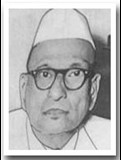Generalities
Opium contains about eighteen alkaloids, of which Apomorphine, Morphine and Codeine are well known. It affects the NERVES; MIND AND SENSES, producing insensibility of nerves; PAINLESSNESS, depression; drowsy stupor, torpidity and general sluggishness of function and lack of vital reaction; a kind of negative state. Excretions, except of skin are checked. Voluntary motions are lessened. Loss of power; of concentration; self control, and judgement. Paralysis; painless; of brain, tongue, bowels etc. Tremors; twitchings; jerking during sleep. Convulsions; worse heat; of room or bath. Bed seems hot; hunts a cold place. Hot; sweat; hand. Stupid sleep; accompanies all complaints; during spasms; violent chill etc. Epilepsy; in sleep; from approach of strangers (children); from fright; worse glare of light; from anger; insult. Throws limbs or stretches arms at right angle to the body; stupor between spasms. Want of susceptibility to medicines even though indicated. Faints every fifteen minutes. Sensation of bodily well being; great happiness. Painless ulcers. Suppuration. Dropsical swelling of the whole body. Internal dryness. Ill effects of fear, fright, anger, shame, sudden joy; charcoal fumes, sun. Complaints appear with sweat. Complete idiocy from masturbation.
Worse
EMOTIONS; FEAR, fright; shame; joy. Odours. ALCOHOL. Sleep. SUPPRESSED DISCHARGES. Receding eruptions. If heated. Sunstroke.
Better
Cold, Uncovering. Constant walking.
Mind
Complete loss of consciousness. Apoplectic states. PLACID. Wants nothing; says nothing ails him. Exaltation of mind; vivid imaginations. Gaiety. Talkative. Rash. Bold; increased courage. Dreamy. Sluggish. Dull. Stupid. No will power. Tendency to lie. Fears; after fright; which remains. Delirium; tremens; with terror. Wants to go home, thinking that he is not at home. Carphology. Indifferent to pain and pleasure. See frightful visions; mice, scorpions etc. Deceptive; vision, taste, touch; perversion of all senses. Imagines parts of his body are very large. Nervous, irritable; tendency to start.
Head
Vertigo; after fright; of old people, with lightness of head; from injuries to head. Heavy occiput. Paralysis of brain. Head hot, with hot sweat.
Eyes
Glassy, staring; immovable. Pupils contracted, dilated, insensible to light. Half closed. Upturned. Ptosis. Visual hallucinations. Red, bulging. Embolism of central artery of retina.
Ears
Acuteness of hearing. Clocks striking at a great distance keeps her awake.
Nose
Loss of smell.
Face
Dark, turgid, sweaty or hot red or pale red alternately. Besotted. Corners of the mouth twitch. Trembling, twitching of the muscles of face, old look; after cholera infantum; of a suckling three or four weeks old. Hanging down of lower jaw. Lock-jaw. Lips swollen, protruding.
Mouth
Tongue; paralyzed; protrudes to right side; black, dry, difficult speech. Bloody froth. Dry mouth.
Throat
Dry. Inability to swallow. On swallowing food either goes the wrong way or returns through the nose.
Stomach
Hungry; but no desire to eat. Vomiting; in peritonitis; of faecal matter, of urine. Very thirsty. Retching from emotions.
Abdomen
Hard, tympanitic. As of a weight in abdomen. Bowels feel completely obstructed. Paralytic atony of bowels; after laparotomy. Lead colic. Incarcerated umbilical or inguinal hernia. Obstinate constipation. Stools of hard black balls. Bloody mucus oozes from open anus. Retention of stools from ileus. Stools involuntary; after fright. Violent pain in rectum as if pressed asunder. Difficult emission of flatus. Intestinal spasms, child cries day and night.
Urinary
Paralytic atony of bladder, after laparotomy. Retention of urine; in children from nursing angry nurse; from spasms of neck of bladder; from fright. Urine slow to start; feeble stream. Involuntary from fright. Renal colic; pain radiates to bladder and testicles.
Male
Spasmodic stricture from drinking poorly fermented liquor; and in drunkards.
Female
Dysmenorrhoea, forcing her to bend double; with urging to stool. Amenorrhoea from fright. Softness of uterus. Lively or violent foetal motion. Puerperal convulsions. Threatened abortion, and suppression of lochia from fright. Convulsions come from stoppage of labour pains. Prolapsus from fright. Hiccough during pregnancy.
Respiratory
Rattling, unequal breathing. Sighing, snoring, continuous, stertor. Cough; tickling with dyspnoea and blue face; or profuse sweat on whole body, better drinking water. Heat in chest. Breathing stops on going to sleep and it does not start unless the patient is moved. Haemoptysis. Aphonia from fright. Yawning after cough.
Heart
Burning about the heart. Weak. Full slow pulse. Palpitation after alarming events, fright, grief, sorrow, etc.
Back
Opisthotonos. Pulsating arteries and swollen veins on neck.
Extremities
Trembling of the limbs after fright. Painless paralysis. Twitchings and spasmodic movements of limbs. Veins of hands distended. Feels as if lower limbs were severed and belong to someone else. Numbness; weakness. Shuffling and trembling gait. One or other arm moves convulsively to and fro.
Skin
Crawling here and there. General itching. Rough and dirty. Dry. Painless, indolent ulcers. Whole body looks red. Blue spots.
Sleep
Somnolency. Heavy stupid sleep; of the aged. Tired and sleepless; drunkards. Sleeplessness from acuteness of hearing. Coma vigil. Sleepy but cannot go to sleep. Dreams of cats, dogs, black forms.
Fever
General low temperature with inclination to stupor. Hot, sweaty and drowsy; with cold limbs. Hot sweat over whole body except lower limbs. Sweats; without relief.
Complementary
Alum; Bar-c; Bry; Phos; Plb.
Related
Amm; Nux-m.

